Tourists Beware: Horses Beaten, Eating Garbage at One of the Seven Wonders of the World
As PETA Asia’s investigative video shows, visitors who choose to ride one of these animals are directly responsible for their pain and misery. See the organization’s latest footage, in which workers mercilessly whip the horses—many of whom have painful wounds that go untreated as they toil in the sun all day long.
This video follows one taken just weeks before at Egypt’s top tourist sites that documents the appalling abuse of horses forced to haul carriages (also called calèches) full of visitors in blistering heat without shade, food, or water.
In order to stop this abuse, we must stop supporting this industry now.
In 2019, a PETA Asia investigation in Egypt revealed horrific abuse of horses and camels forced to haul visitors on their backs or in carriages at the top tourist sites in the blistering heat without access to food, water, or shade. At the notorious Birqash Camel Market, which supplies camels to some of the tourist spots, animals were severely beaten with sticks. In 2020, Egypt’s Ministry of Tourism and Antiquities pledged to replace animals with electric vehicles at Giza.
Even though PETA Asia sent new video footage to the Ministry of Tourism and Antiquities showing horses at Giza with open sores and severe, untreated injuries—including broken legs—trying to subsist by eating from garbage dumps, the ministry has informed the group that it won’t provide these horses with water or shade until the second half of 2023. PETA is calling on the organization to step up and ensure that they get shade, food, and water now.
Two years after they were promised, some electric vehicles have now been introduced to the site. Although they’re a welcome change, all horse-drawn carriages must be removed—horses shouldn’t be forced to wait any longer.
Horses in Sweltering Heat
Animals at these sites are forced to wait for the next paying customer in the scorching sun without access to food, water, or shade.
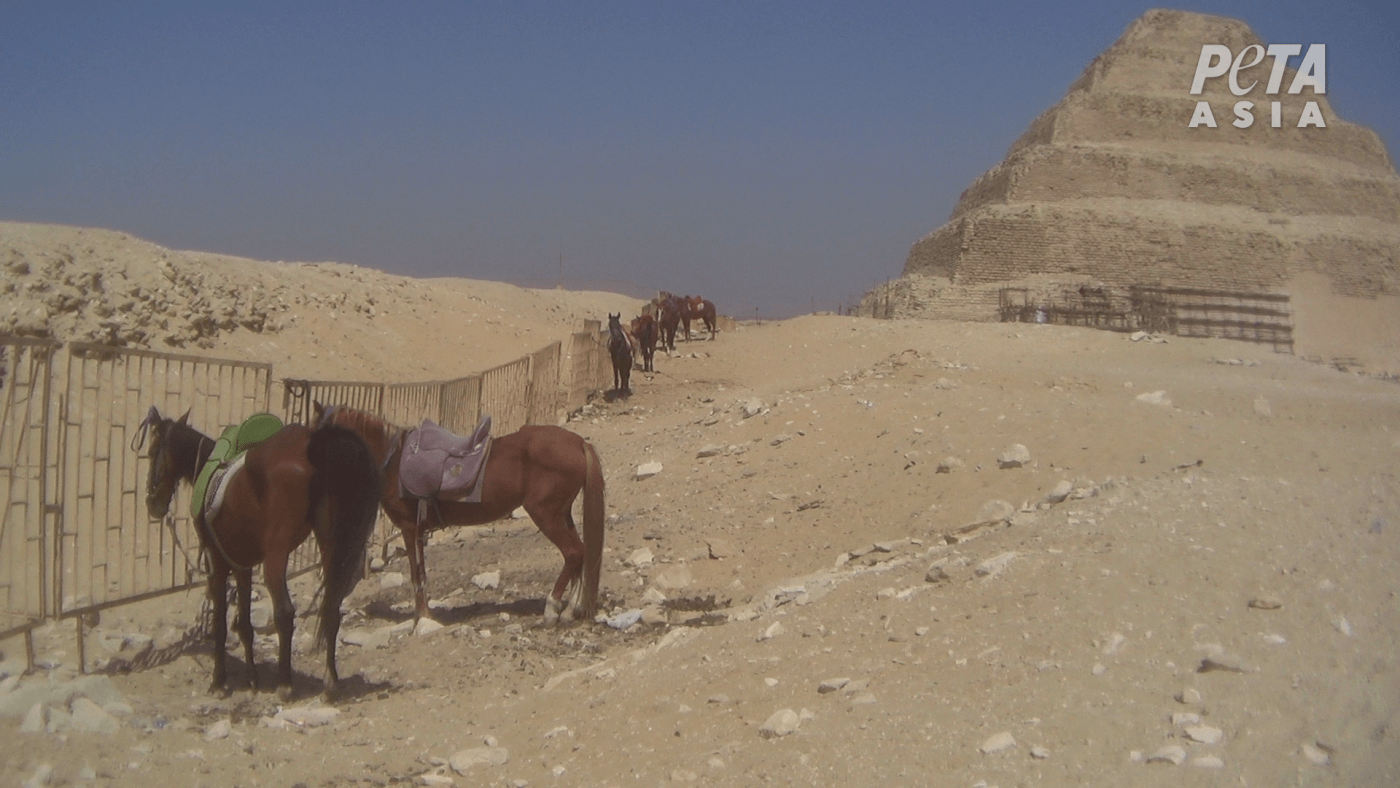
Workers give horses no breaks and beat and whip them into giving endless rides in the heat, even as their knees buckle and they collapse.
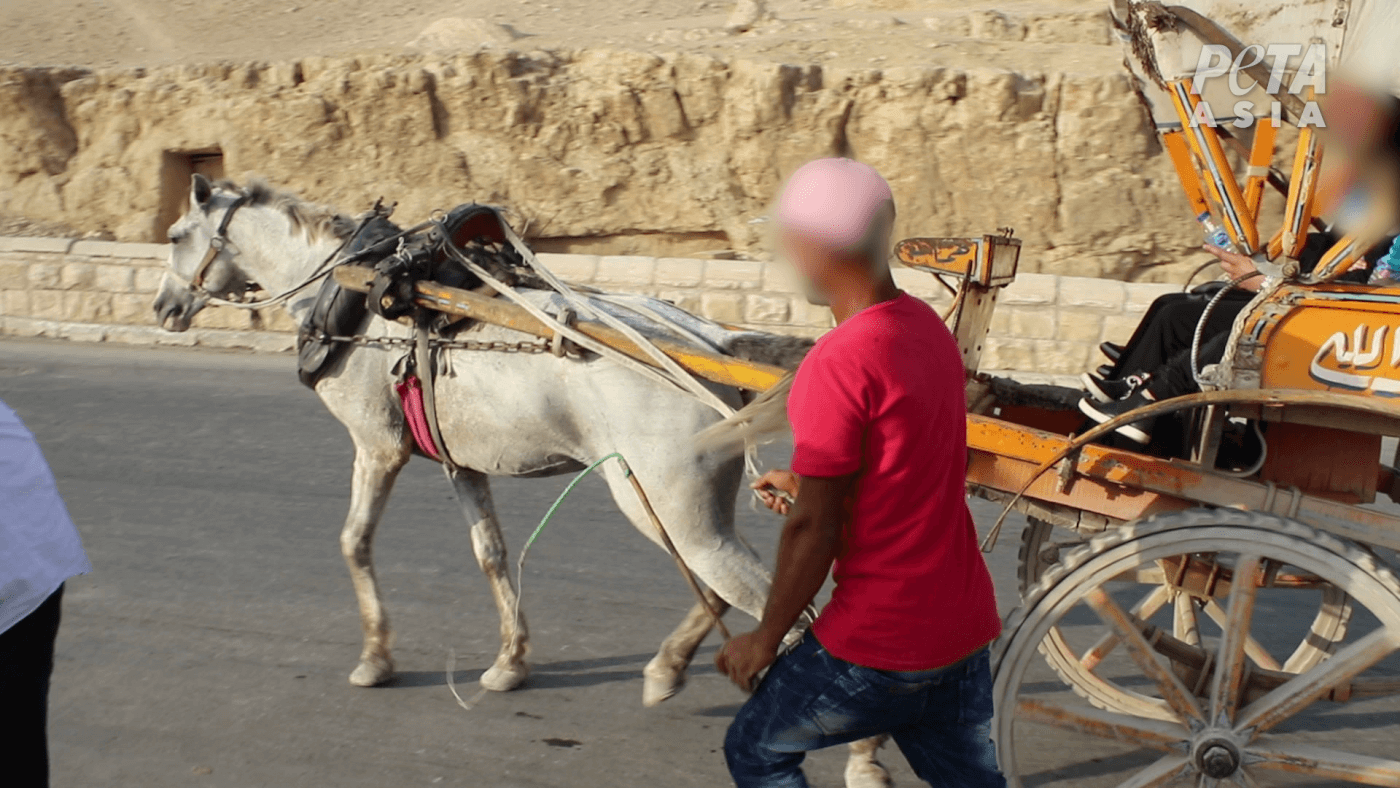
Workers Beat Horses Until They Drop
Handlers viciously beat animals who are simply too exhausted to go on. Workers in Giza were seen continuously beating a horse who had collapsed while being forced to haul a tourist in a carriage. They did not stop beating her until she finally managed to get back up. Eyewitnesses report that she was quickly put back to work even though she had been severely injured by the fall.
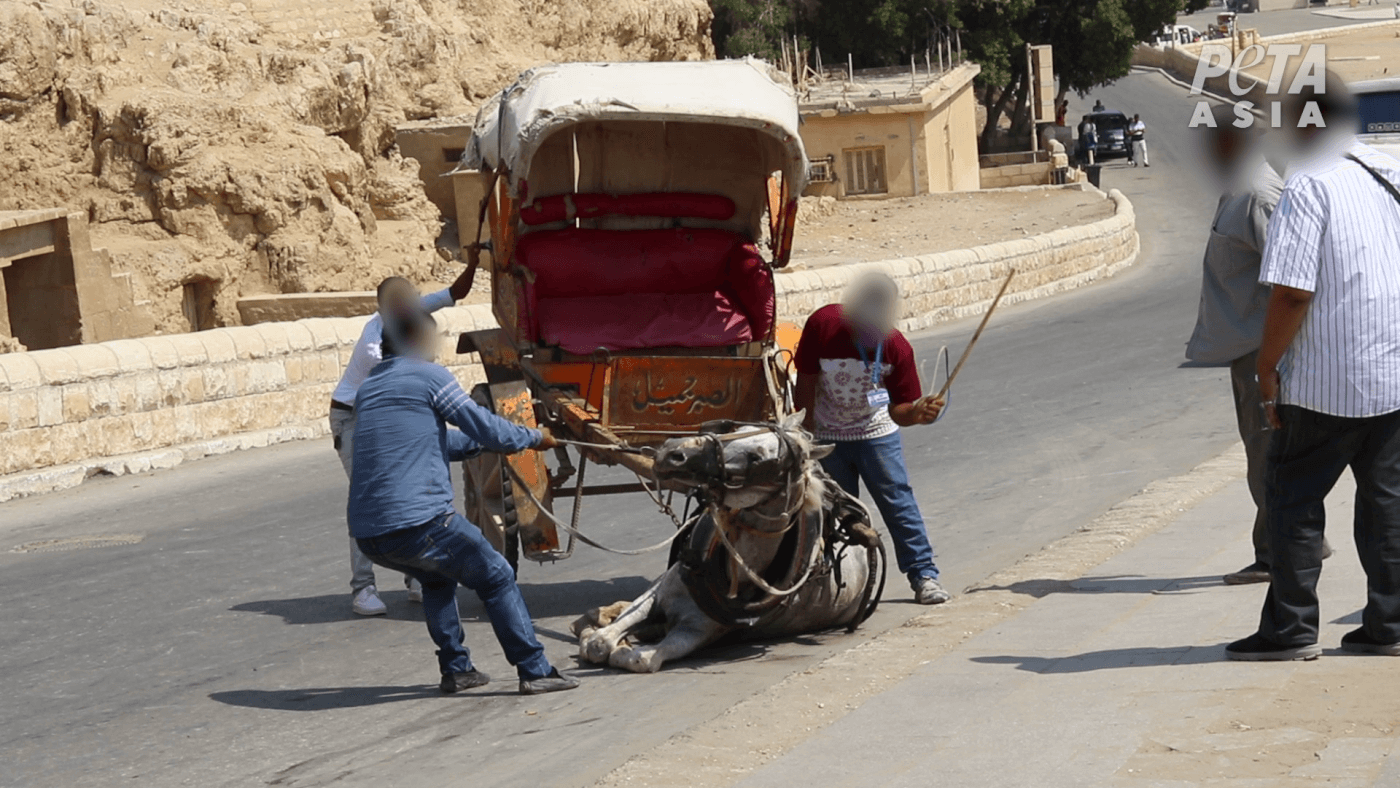
Eyewitnesses also observed screaming camels who were viciously beaten with sticks by men and children at the Birqash Camel Market before being sold to the tourism industry. Some camels are even sold to the meat industry.
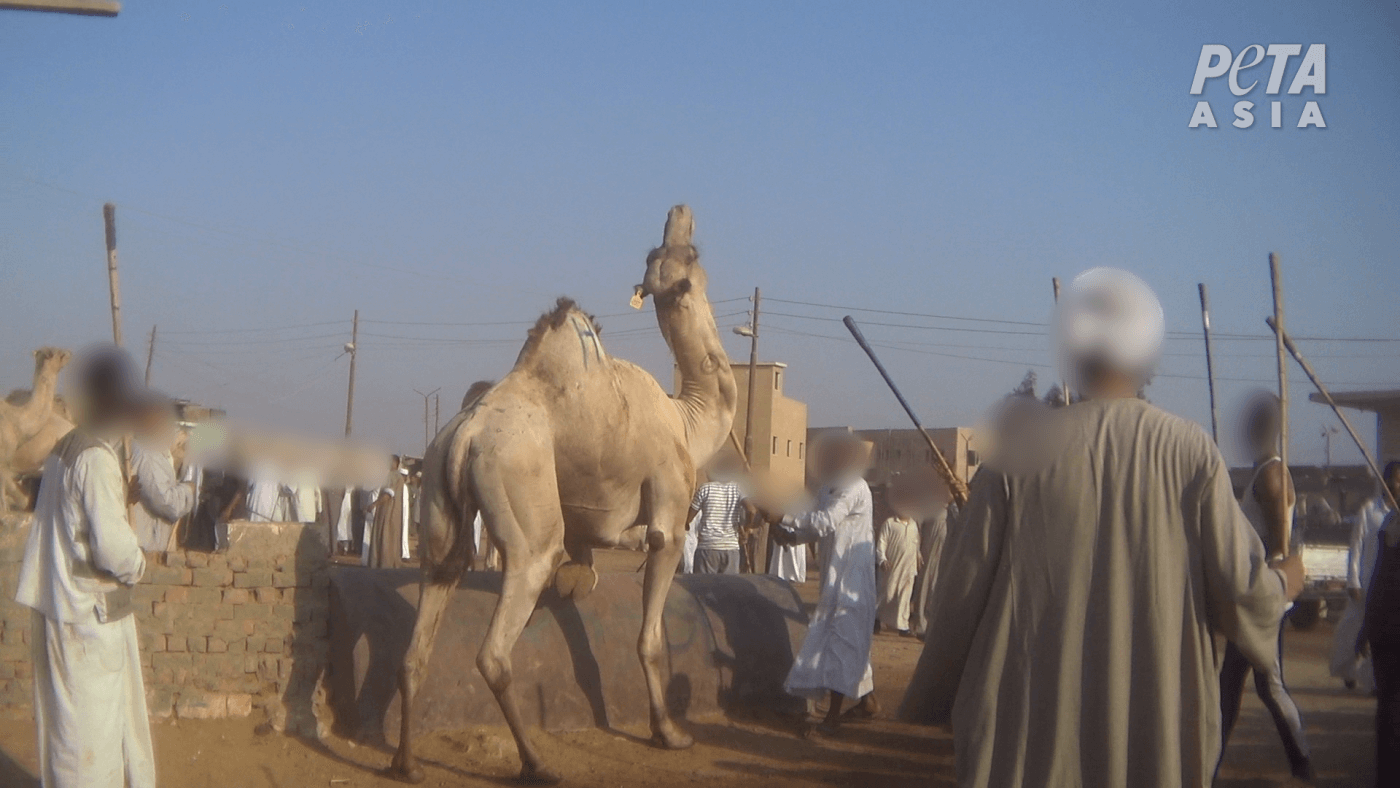
Horses Injured, Bleeding, and in Pain
Many horses used for rides in Giza and Luxor were seen with painful, bloody wounds yet were forced to continue to cart tourists around.
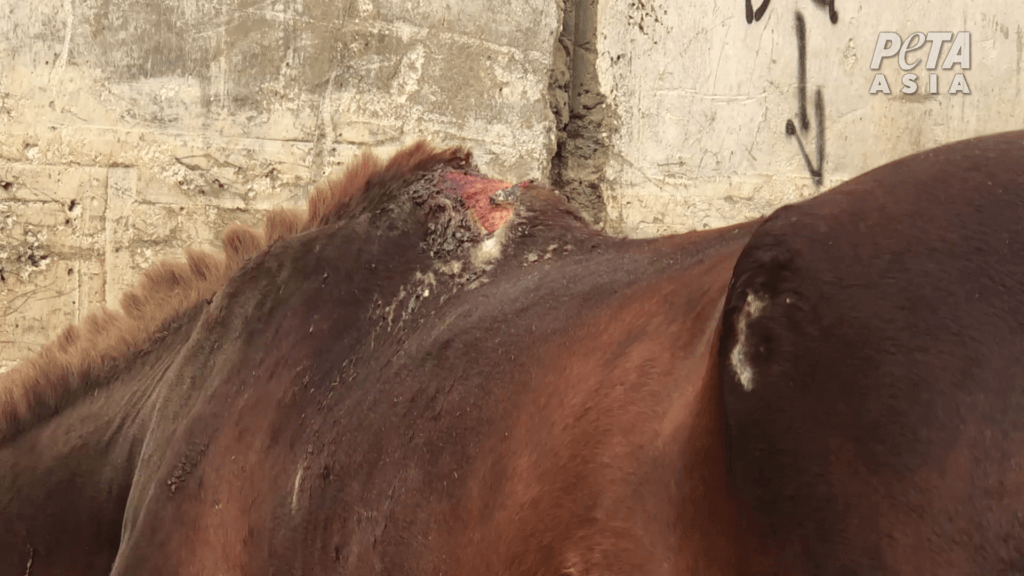
Many of the animals’ faces were bloody.
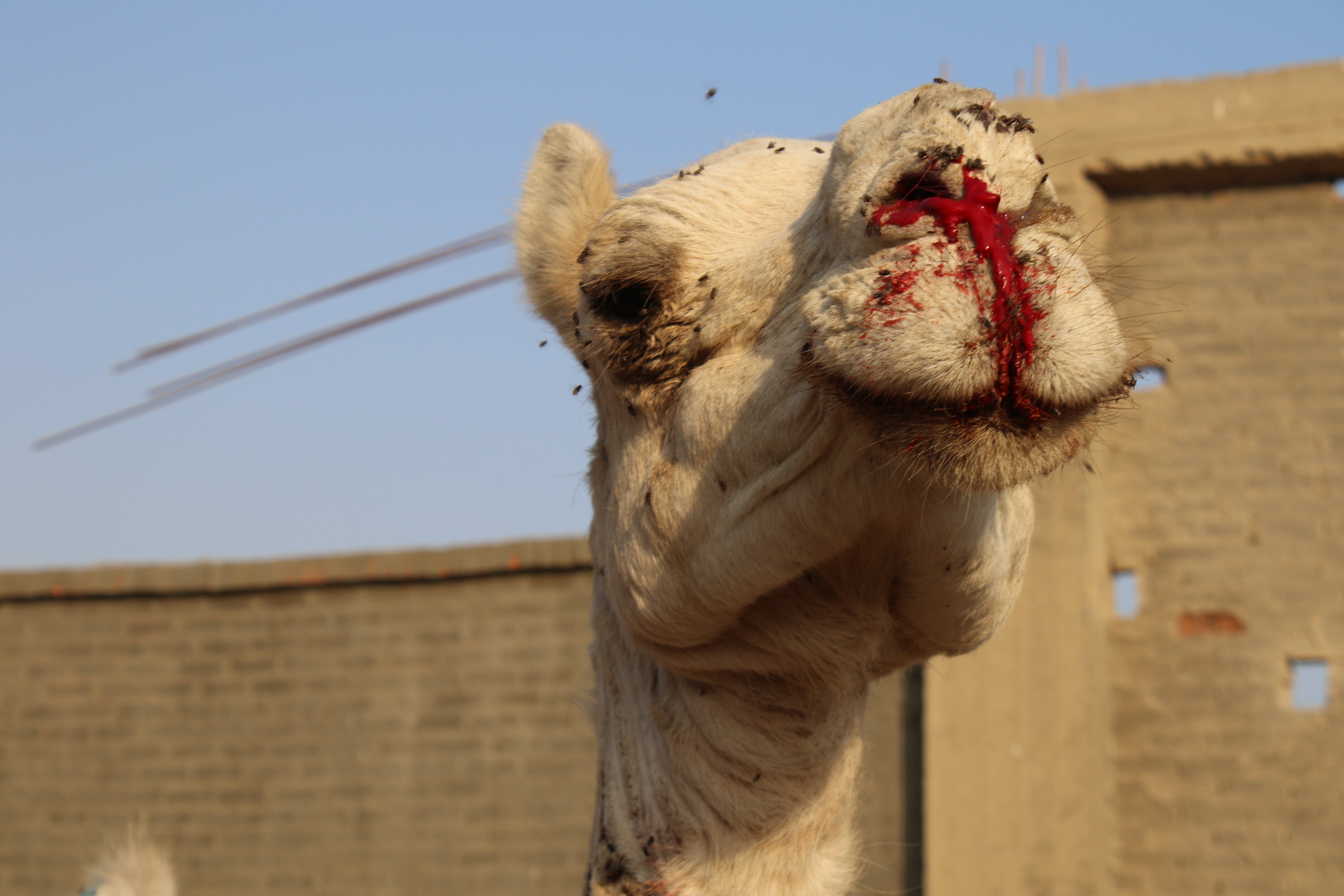
Emaciated horses whose ribs jutted out through their skin were repeatedly yanked and whipped.
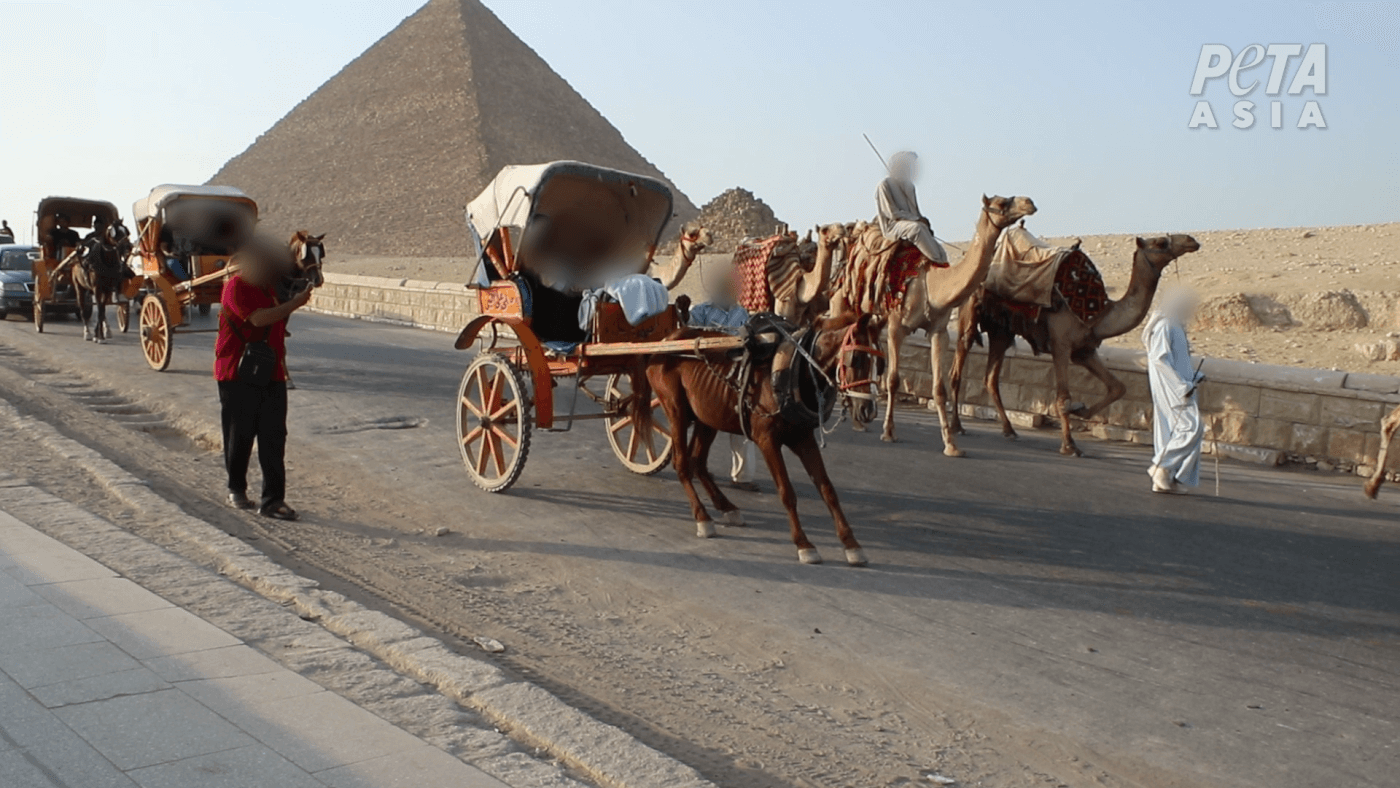
Weak Animals Are Slaughtered for Meat
Once the camels sold at the Birqash market are no longer able to give rides around the Giza and Saqqara pyramids, they’re returned to the market to be sent for slaughter.
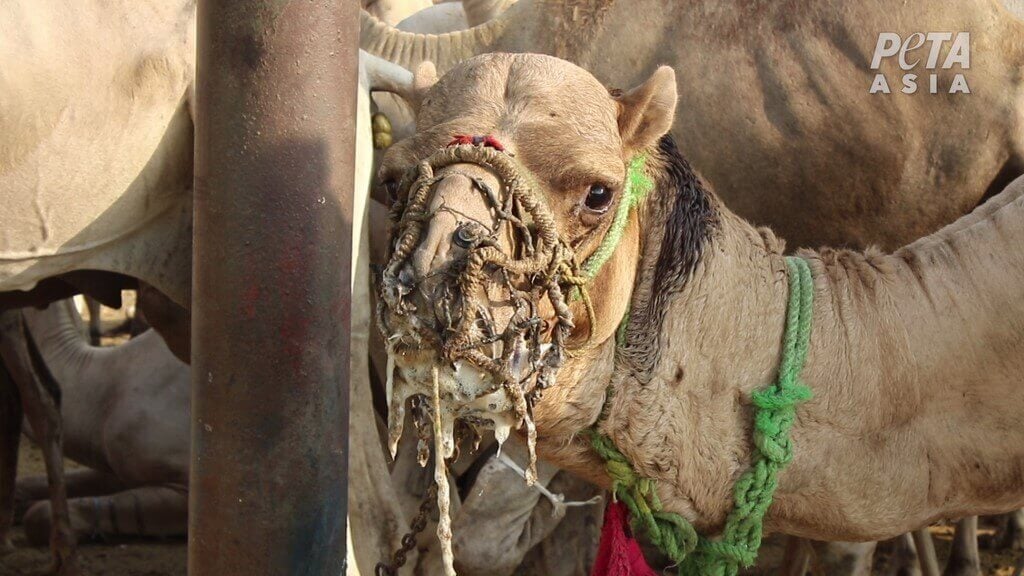
Tourists who pay for rides are keeping these operations in business. When you book a trip to Egypt, ask your tour company and hotel if they promote these rides. If they do, explain why they should stop doing so. Never ride an animal or participate in animal encounters, no matter where in the world you vacation—including in the U.S.
Please urge Egypt’s minister of Tourism and Antiquities to end this abuse by banning camel rides and horse-drawn carriages.